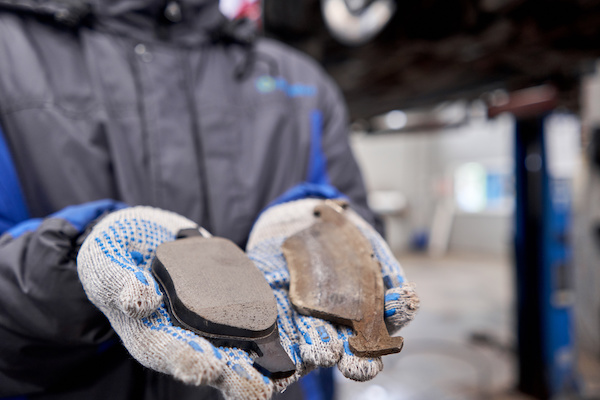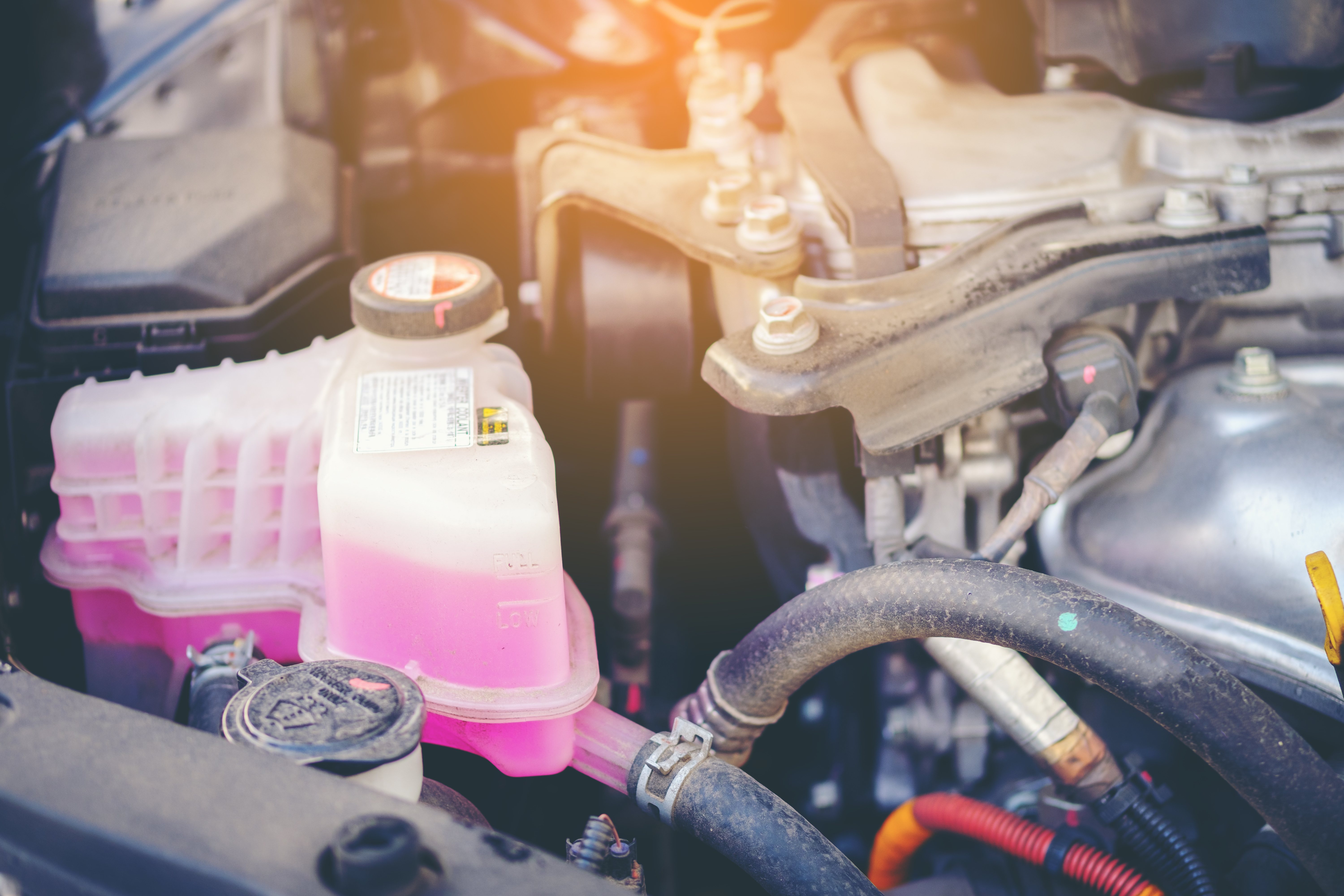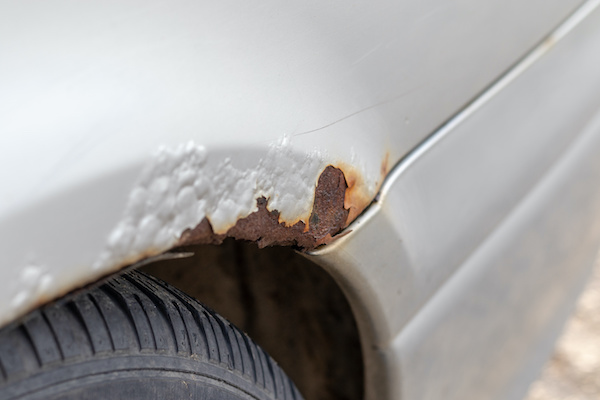Posted on 11/29/2020

It's no secret that the brakes serve a crucial function to your vehicle's safety and functionality. Brakes are not designed to last forever, and if degraded, can severely impact your car's handling and drivability. Depending on where you go for service, drivers can expect a brake pad replacement cost anywhere from $100-$150 per axle. This is a costly maintenance task that can leave your wallet angry at you. Several factors can influence the brakes' lifespan, and wear rate can be different from driver to driver. Driving in stop-and-go traffic wears the brakes faster than long stints on the highway. Outside of regular brake maintenance, there are a few helpful tips that can extend the life of your brakes. Try not to speed. One of the primary causes of brake pad wear is braking at high driving speeds. Your vehicle has to work harder and exert more energy to stop when you're speeding. Brake pads transform energy into heat, but braking at high speeds can create t ... read more
Posted on 10/30/2020

To drive optimally, your vehicle's engine needs to stay at a specific temperature range. Coolant is an essential fluid that helps regulate the temperature and works as a lubricant for the radiator system. Unfortunately, coolant doesn't last forever. With time the fluid can deplete, and contaminants can build up. In severe cases, pollutants may even reach the radiator. A coolant flush service is a perfect solution as it flushes out all used coolant and contaminants out of the radiator system. A coolant flush protects the engine from internal corrosion, keeping it in the best shape possible. Below are three common signs it's time to schedule a coolant flush. Low Coolant If you pop the hood of your car and notice the coolant levels are lower than usual, try topping it off. Coolant levels that are consistently low may be alerting you to a leak. Check underneath your vehicle for any lime green, sweet-smelling fluid. If you suspect there's a leak, bring yo ... read more
Posted on 9/24/2020
Being a good driver starts with adopting good driving habits. For most drivers, getting behind the wheel has become habitual. However, it’s never a wrong time to make changes for a safer drive for you, your passengers, and other drivers on the road. Even the most experienced drivers can have bad driving habits. The following list is a good refresher to get back on the right track. Below are a variety of driving habits that can increase safety and vehicle longevity. Read the owner’s manual If the vehicle didn’t come with an owner’s manual, most cars will have a PDF available online. Reading the manual is essential because the manufacturers have detailed recommendations on vehicle maintenance that promotes optimal performance. Stop distracted driving Put your phone in a vehicle holder and stop texting. Distracted driving is dangerous driving, for you and everyone on the road. Most vehicles have Bluetooth, but it may be best to save that phone conve ... read more
Posted on 8/31/2020

In some ways, your vehicle is similar to the human body. While your car can’t catch a cold, noticing rust is a sign that should deserve ‘medical attention.’ Seeing rust on your vehicle is not an ultimate death sentence; it can range in severity. While some cases of rust are combated with quick fixes, other issues may require a major repair. Rust occurs when your vehicle’s steel components are in contact with oxygen and moisture for an extended period. This will cause the metal to become reddish-brown and deteriorate. The result is a metal that’s brittle worn, one that eventually loses its structural compound. The last thing you’d want is the structural compound of your vehicle to become brittle and deteriorated. Rust has a specialized nature and is difficult to combat; it’s always best to bring your cars to the professionals to save your vehicle. Below are a few tips to prevent rust from accumulating from the start: Co ... read more
Posted on 7/31/2020
This year seems to be the year of radical change with social injustice, a nationwide pandemic, mental growth, and financial burdens. With these changes, more people are packing up and relocating. Relocating can be stressful, especially when it’s to a new state. Many other priorities may lead to minor oversight when it comes to your vehicle. Below is a to-do list for your car to keep handy while you’re packing boxes and hiring movers. Contact your automotive insurance provider to update your insurance policy. It’s essential to make sure your insurance company is aware of your move to maintain coverage when you arrive in your new state. Depending on where you’re relocating, it may be wise to discuss additional coverage options. Your car insurance premiums may increase or decrease depending on where you move, preparing in advance allows you to shop around to find a more affordable rate if you need to. Shipping your vehicle can save you h ... read more
Posted on 7/4/2013
When you first bought your car, you were probably told that you needed to have your oil changed every three months or every 3,000 miles. However, this may not be the case any longer. Some people might recommend you have the oil changed every 3,000 miles, but research shows that this has changed. Years ago, the 3,000 mile/3 month rule was standard practice. If you happen to drive an older vehicle, it may still be advisable if you drive in harsh climates. But newer cars, those made since 2002, do not need to have the oil changed every 3,000 miles. There are several factors that will determine how often you should change your oil. Some of those are the way that you drive your car, how you handle your vehicle and if you drive more on the highways or around the city. Most experts advise a time around 5,000 miles. That number will be a little less for those who drive sporadically. Even if your car sits in the driveway, it should still have the oil changed occasionally. As the mileage in t ... read more
Posted on 7/4/2013
Preventive maintenance is the key step to eliminate the loss of air conditioning in your automobile during the scorching summer months. A short inspection by a qualified automotive technician will reveal the possible need for maintenance or repair. Catching issues before they spiral out of control will help reduce costs that would consume the family budget. The main focal point of attention in preventive air conditioning maintenance for automobiles is the refrigerant. If a low level exists and is caught in time, simply adding a small amount to fill the system is all that is required. However if low levels are not caught in time, the remaining coolant must be drained and a complete replacement must be done. The process is called recharging and is vital in re-establishing the health of the air conditioning system. Equipment failure is the next leading cause of the air conditioning not working. The ASE professionals at B&L Auto can quickly troubleshoot where the problem is. Compres ... read more
Posted on 7/4/2013
Sometimes parts on a car break for no reason. But usually, the malfunction is caused by long-term wear and tear. You can prevent many of these breakdowns and ensure your vehicle’s longevity by performing preventative maintenance. Preventative maintenance can involve anything from getting your oil and air filter changed to getting your tires rotated. Your car’s maintenance guide should spell out for you what preventative maintenance you need and when you should have it done. The purpose of preventative maintenance on your car is to lessen wear and tear on your car. For example, you get your oil changed every few thousand miles because the oil gets dirty after awhile and no longer works like it should. You get your tires rotated every few thousand miles because it helps even out the wear and make sure one tire doesn’t wear out faster than the others. Replacing brake pads when they wear out ensures that you don’t do any serious damage to your brakes that would be ... read more